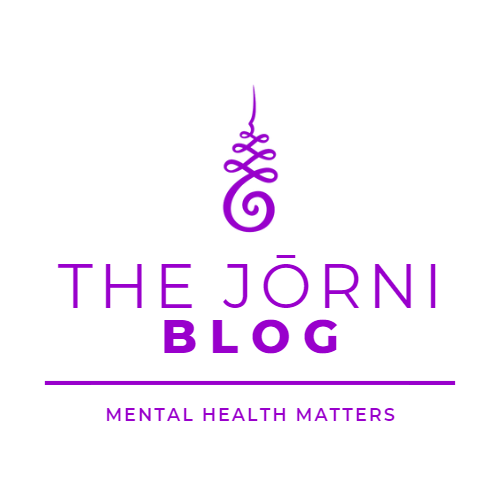An Invisible Struggle
In today's fast-paced world, the term "Traumatic Brain Injury" (TBI) might flicker across our news feeds or television screens and go unnoticed. It's easy to dismiss it as just another medical term, especially if it hasn't directly touched our lives or the lives of those we care about. However, TBI is far from a simple medical label. It's a life-altering injury that infiltrates every aspect of our existence - from our physical capabilities to our cognitive functions, and even our emotional wellbeing. Our mission today is to take you beyond the buzzwords and the medical jargon, to dive deep into the multi-faceted, often misunderstood world of TBI.
It's a common misconception that TBI is a rare or infrequent occurrence. This couldn't be further from the truth. Every year, millions of people, from young children to the elderly, are diagnosed with some form of TBI. This makes it a critical public health issue that demands more awareness and understanding. The statistics are not just numbers; they represent real people, each with their own stories of struggle and resilience.
“Awareness is the first step in healing. ”
- Dean Ornish
Daniel Gospodarek’s Journey
Daniel Gospodarek is a Licensed Clinical Social Worker (LCSW) in Denver, Colorado. He sustained a Traumatic Brain Injury in 2009 from a motor vehicle accident. Through his recovery process, he found a calling to help others by exploring the social work profession.

From mindfulness practices to cognitive behavioral therapy, Daniel used a mix of strategies to improve his emotional and cognitive wellbeing. His multifaceted approach is a testament to the complexity of TBI and the need for a broad range of therapies.
Traumatic Brain Injury in Everyday Life
When we hear about Traumatic Brain Injury, it's easy to conjure images of high-risk activities like extreme sports or think about military personnel exposed to combat situations. However, TBI is far more democratic in choosing its victims. The reality is that the causes of TBI are all around us, part of our everyday lives. A child falling off a swing, a senior tripping over a rug at home, or someone slipping on an icy pavement - these seemingly benign scenarios can all lead to TBI. Additionally, common incidents like bicycle accidents could be more hazardous than they appear. TBI isn't restricted to high-risk behaviors or specific groups of people.
While the day-to-day risks are concerning, high-impact incidents like car crashes and physical attacks are still significant contributors to the TBI statistics. The violent shaking of the brain during these events can result in severe forms of TBI that often require immediate medical attention and long-term care. Occupational hazards also come into play, especially for jobs that involve heavy machinery, heights, or high speeds. It's not just athletes or soldiers who are on the receiving end; first responders, construction workers, and even people involved in domestic disputes can find themselves facing the life-altering impacts of TBI.

Understanding this wide range of causes is critical for several reasons. For one, it dispels the myth that only "certain people" need to worry about TBI. Being informed and vigilant about the diverse causes is the first step towards prevention and preparedness. Awareness campaigns shouldn't just be targeted at schools with sports programs or military organizations; they should be community-wide efforts that educate everyone - from kids playing in their backyard to adults navigating the complexities of modern life.
Why We Don't Talk About Traumatic Brain Injury Enough
Traumatic Brain Injury is a pervasive health issue that affects millions, yet it remains eerily absent from many of our public dialogues. We often hear about heart disease, diabetes, and other common conditions, but TBI doesn't get the same attention, even though it profoundly affects both individuals and families. This lack of discourse isn't an oversight. It is a reflection of various societal factors that have led to silence around this topic. Let’s explore some of the underlying reasons for this silence and the ripple effects it creates in our understanding and management of TBI.
Traumatic Brain Injury Stigma
One of the significant roadblocks to discussing Traumatic Brain Injury openly is the stigma attached to it. For many people, admitting to a brain injury feels like a confession of weakness or disability. There is a misguided societal belief that brain injuries equate to mental incompetence or emotional instability. This can be especially challenging in the workplace or within social circles, where people may fear discrimination or judgment. The stigmatization often leads to a vicious cycle: individuals do not talk about their experiences, so the stigma persists, making it even more difficult for the next person to open up.
The Complexity of TBI Symptoms
Adding to the challenge is the invisibility of many TBI symptoms. Unlike a broken leg or a visible scar, brain injuries often manifest in ways that are not immediately noticeable to the casual observer. Cognitive impairments, memory issues, or emotional volatility can all be symptoms of TBI but are often mistaken for character flaws or personality quirks. This lack of visible indicators leads to a difficult struggle for the affected individuals. Not only do they have to cope with the actual symptoms, but they also have to battle the misconceptions and judgments from people unaware of their condition.

Our Collective Responsibility Around Traumatic Brain Injury
It is clear that the silence surrounding TBI is both socially and medically harmful. The absence of open conversations around this topic limits public awareness, minimizes funding for essential research, and slows the implementation of preventative measures. However, there is hope. The more we discuss TBI openly, the more we chip away at these barriers. Awareness starts at the grassroots level -with us. Each shared story, every educational campaign, and all efforts to spread information can build a more supportive, empathetic, and knowledgeable community. The first step towards addressing the widespread impact of TBI is dismantling the silence that currently surrounds it. And that begins with each of us taking the responsibility to speak up and listen attentively.
Unpacking the Mechanisms: The Science of Traumatic Brain Injury (TBI)
Traumatic Brain Injury (TBI) is more than just an external force impacting the head; it triggers a complex series of events that unfold at the cellular and biochemical levels. In this section, we will delve into the intricate mechanisms and science behind TBI, providing a foundational understanding of what actually happens during and after such an injury.
The Initial Impact: Mechanical Forces and Immediate Reactions
The first thing to consider is the mechanical aspect of the injury. When an external force strikes the head, it can result in immediate damage to the brain tissues. The force can cause contusions, lacerations, and even more subtle forms of injury like shearing of axons, the long threadlike part of a nerve cell. This initial phase may disrupt normal neural function and set off a cascade of secondary injuries.

Biochemical Cascade: A Chain Reaction of Events
Following the immediate mechanical impact, a flood of biochemical events occurs within the brain. Stress hormones are released, neurotransmitter balance is thrown off, and gene expression may even be altered. One significant event is the onset of oxidative stress, where the balance between free radicals and antioxidants is disrupted, leading to potential damage to brain cells.
Secondary Events: Lasting Complications
After surviving the immediate mechanical and biochemical changes, the brain isn't out of the woods yet. Secondary injuries may develop, such as increased intracranial pressure or swelling, and disruptions in the blood-brain barrier. These issues can lead to nutrient deprivation for brain cells, triggering further complications like neuronal death and tissue atrophy.
By diving deep into the science behind TBI, we can not only better understand the complexities of the condition but also pave the way for more effective and targeted treatment options. Understanding the mechanics and science is a stepping stone to improving care and outcomes for those afflicted with TBI.
What Information About Traumatic Brain Injury Means for Us
As we navigate through the intricacies of Traumatic Brain Injury, it's essential to recognize that this isn't just theoretical information devoid of real-world impact. The depth and breadth of our understanding of TBI have profound implications for how we live our lives, relate to others, and engage with our community. With this foundation, the insights gained in subsequent discussions become more than just facts; they transform into actionable knowledge that shapes our behaviors, decisions, and interactions.
How Knowledge Impacts Our Wellbeing
Grasping the nuances of Traumatic Brain Injury doesn't just fill a knowledge gap; it equips us with the tools to improve our own wellbeing and that of the people around us. Being aware of the broad range of causes, for instance, can prompt us to take safety measures in daily activities that we might otherwise overlook. The knowledge can also make us more empathetic caregivers or support figures, able to recognize symptoms that could otherwise go undiagnosed or misattributed.

Creating a More Compassionate Community
Understanding the diverse origins and manifestations of TBI can also drive societal change. Often, prejudices or misunderstandings about TBI stem from a lack of awareness. With better education around the subject, we can challenge stereotypes, fight stigma, and foster a more inclusive and supportive community. Schools can incorporate TBI awareness into their curriculum, employers can develop more accommodating workplace policies, and local governments can invest in public awareness campaigns.
Understanding the Unseen Struggles of Traumatic Brain Injury
Then there is the emotional aspect of TBI, which often gets overlooked in the broader narrative. Understanding that TBI impacts not just the physical but also the emotional wellbeing of an individual is vital for holistic recovery and support. This viewpoint encourages a more comprehensive approach to treatment that goes beyond medications and physical therapy to include psychological support and community-based programs.
The TAKEAWAY
We explored the science of Traumatic Brain Injury, not to overwhelm, but to empower each of us with critical knowledge. Understanding that TBI is not merely an isolated physical event but a cascade of biochemical changes affecting neurotransmitters and disrupting regular brain function offers a more nuanced perspective. This knowledge shifts the focus from merely treating the visible symptoms to addressing the complex interplay between physical, cognitive, and emotional factors. It gives us a fuller picture of what we're up against, guiding us in a more informed manner as we navigate the road to recovery.
The long-term consequences of TBI - ranging from cognitive impairments to emotional volatility and even increased risk of degenerative diseases like Alzheimer's - highlight the enduring nature of its impact. Recovery, then, becomes a long-term commitment, a marathon requiring consistent and targeted efforts. This is where a strong support network, customized treatment plans, and adaptive technologies become essential. They're not just crutches to lean on but vital tools that contribute to a holistic approach to healing.

Let's keep in mind that understanding the intricate science and long-term implications of TBI empowers us to strive for more than just physical recovery. Our emotional and cognitive facets need nurturing and healing just as urgently. By being fully informed and proactive, we're not just aiming for survival post-TBI. We are working towards a life filled with meaning, purpose, and emotional richness.
Armed with this information, each one of us is better positioned to make this challenging journey a transformative experience.

